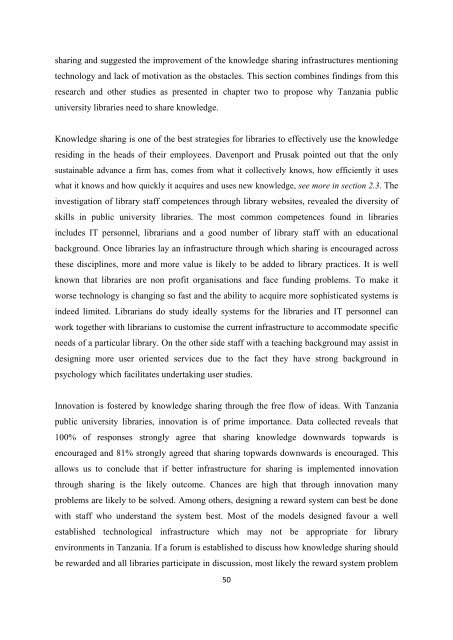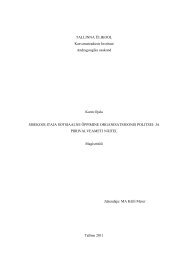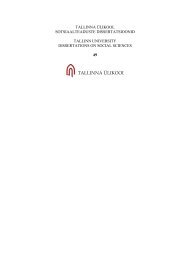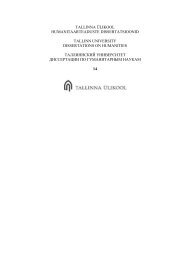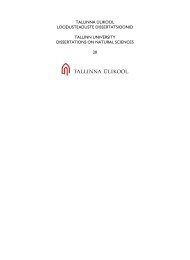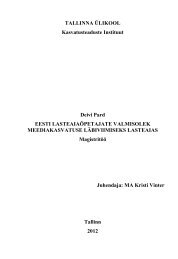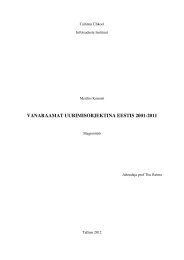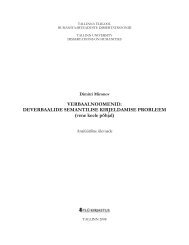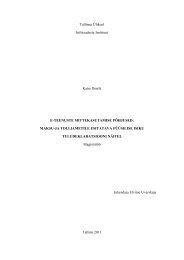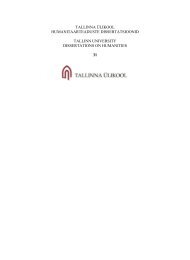Download (1157Kb) - E-Ait
Download (1157Kb) - E-Ait
Download (1157Kb) - E-Ait
Create successful ePaper yourself
Turn your PDF publications into a flip-book with our unique Google optimized e-Paper software.
sharing and suggested the improvement of the knowledge sharing infrastructures mentioning<br />
technology and lack of motivation as the obstacles. This section combines findings from this<br />
research and other studies as presented in chapter two to propose why Tanzania public<br />
university libraries need to share knowledge.<br />
Knowledge sharing is one of the best strategies for libraries to effectively use the knowledge<br />
residing in the heads of their employees. Davenport and Prusak pointed out that the only<br />
sustainable advance a firm has, comes from what it collectively knows, how efficiently it uses<br />
what it knows and how quickly it acquires and uses new knowledge, see more in section 2.3. The<br />
investigation of library staff competences through library websites, revealed the diversity of<br />
skills in public university libraries. The most common competences found in libraries<br />
includes IT personnel, librarians and a good number of library staff with an educational<br />
background. Once libraries lay an infrastructure through which sharing is encouraged across<br />
these disciplines, more and more value is likely to be added to library practices. It is well<br />
known that libraries are non profit organisations and face funding problems. To make it<br />
worse technology is changing so fast and the ability to acquire more sophisticated systems is<br />
indeed limited. Librarians do study ideally systems for the libraries and IT personnel can<br />
work together with librarians to customise the current infrastructure to accommodate specific<br />
needs of a particular library. On the other side staff with a teaching background may assist in<br />
designing more user oriented services due to the fact they have strong background in<br />
psychology which facilitates undertaking user studies.<br />
Innovation is fostered by knowledge sharing through the free flow of ideas. With Tanzania<br />
public university libraries, innovation is of prime importance. Data collected reveals that<br />
100% of responses strongly agree that sharing knowledge downwards topwards is<br />
encouraged and 81% strongly agreed that sharing topwards downwards is encouraged. This<br />
allows us to conclude that if better infrastructure for sharing is implemented innovation<br />
through sharing is the likely outcome. Chances are high that through innovation many<br />
problems are likely to be solved. Among others, designing a reward system can best be done<br />
with staff who understand the system best. Most of the models designed favour a well<br />
established technological infrastructure which may not be appropriate for library<br />
environments in Tanzania. If a forum is established to discuss how knowledge sharing should<br />
be rewarded and all libraries participate in discussion, most likely the reward system problem<br />
50


